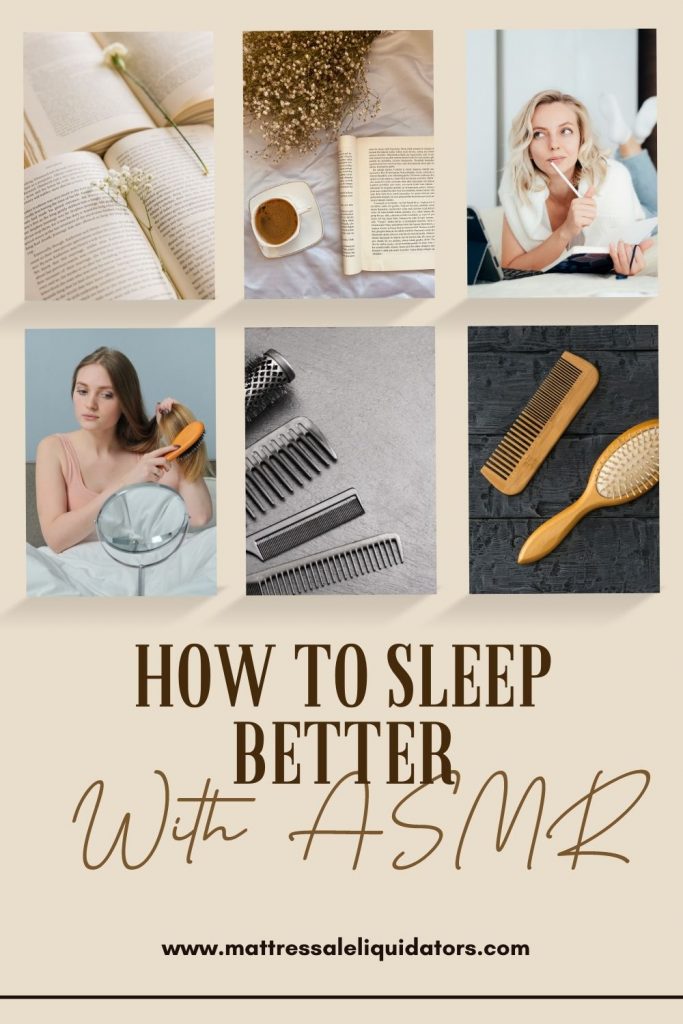As someone with frequent, recurring sleeping problems, I’ve tried a ton of ways to get past my insomnia. This is because God ironically decided to bless me with both sleeping problems and the incapability to function during the day on less than eight hours of sleep—a truly disastrous combination.

And believe me when I say I’ve tried it all—I’ve scoured multiple mattress stores in Orange County looking for the most comfortable mattress, meditated with various breathing techniques, drank a glass of warm milk before bed… heck, I’ve even tried reading one of my old college textbooks to bore myself to sleep!
But none of these ways were as truly effective as one of today’s most popular trends—ASMR. There’s a reason it’s so popular! In this article, I’ll be discussing what ASMR is and why you should consider practicing it if you have difficulty sleeping.
Definition of ASMR
ASMR stands for autonomous sensory meridian response. It is the tingling and calming sensation people get when they experience certain stimuli. These can be triggered by the senses of hearing (e.g., typing on a keyboard, sauteing food on a pan), seeing (e.g., putting on eyeshadow, writing on a chalkboard), and touching (e.g., having hair brushed, getting a massage).
ASMR is described by people who experience it as a tingly feeling that starts at the top of their head and travels down to the rest of their bodies. Others describe it as a tickly sensation in the ear. Whichever way people experience it, ASMR leaves them feeling calm, relaxed, destressed, and sleepy.
Benefits of ASMR
Not a lot of scientific research has gone specifically into ASMR and its benefits for sleep, which is a shame in my opinion. There are tons of anecdotal evidence and relevant studies showing that ASMR helps people sleep better at night.
According to the Sleep Foundation, for example, the areas of the brain that experience ASMR are areas that produce feel-good hormones like dopamine, oxytocin, and endorphins. ASMR helps people who go through lots of stress and worries to leave their woes behind and get a few hours of shuteye. Additionally, in terms of anecdotal evidence, some people with mood disorders like depression, panic disorders, and anxiety report that ASMR helps calm them down during their episodes.
If this were studied further, ASMR has a lot of potential in the treatment of mental health issues.
Research also shows that ASMR helps improve mindfulness, which is characterized as paying close attention to the present moment. Mindful people tend to handle stress more effectively and manage chronic pain, which then improves their quality of sleep. In the long term, mindfulness maintains peak physical health by lowering blood pressure, alleviating gastrointestinal problems, and preventing heart disease.
So, while we can’t make definitive conclusions, we can say that ASMR promotes a better quality of life.
Types of ASMR
Plug in the term ‘ASMR’ on YouTube’s search engine and you’ll be shocked at how many videos pop up. People have different ASMR preferences, and it might take some time for you to find something to help you fall asleep at night.
Here are some of the most popular ASMR triggers:
- tapping on surfaces
- brushing the hair or face
- writing and page-turning
- whispering or soft-spoken voices
- ear cleaning and personal attention
- finger fluttering or touching
Some people even have a whole compilation of various triggers like what we see here!
Now, not every trigger you find will work for you. Some can be grating on the ear and will do the opposite of making you sleepy. For example, I absolutely loathe the sound of soft-spoken voices and will do anything to avoid them!
So, just go through YouTube’s extensive list of ASMR videos and ASMR producers (so-called ASMRtists) and experiment. YouTube is your oyster, and you’re bound to find something there that will suit your fancy! Pretty soon, you’ll be listening to these videos before bedtime, relaxing, and eventually drifting off to sleep.
In fact, I’m listening to the video linked above right now and can already feel the stress melting away…
Disadvantages of ASMR
Don’t worry, this isn’t really a serious disadvantage.
Because much about ASMR is still unknown, people have misconceptions about it. Some would consider ASMR sexually perverse or socially deviant, which then discourages them from sharing their ASMR experience with others.
But let me tell you this right now—tons of people experience ASMR! As I mentioned earlier, ASMR will only grow in popularity from here, and there are lots of resources that will help you take advantage of it. And besides, would you really let go of a good night’s sleep and numerous physical and mental health benefits to avoid people judging you?
I would certainly hope not.
Conclusion
I will never run out of good things to say about ASMR. Since I discovered it, it has helped me fall asleep better, improved my attention span, and destress during stressful situations. With its growing popularity worldwide, now is prime time to experiment with ASMR and see how it can benefit you and your sleeping habits too.
